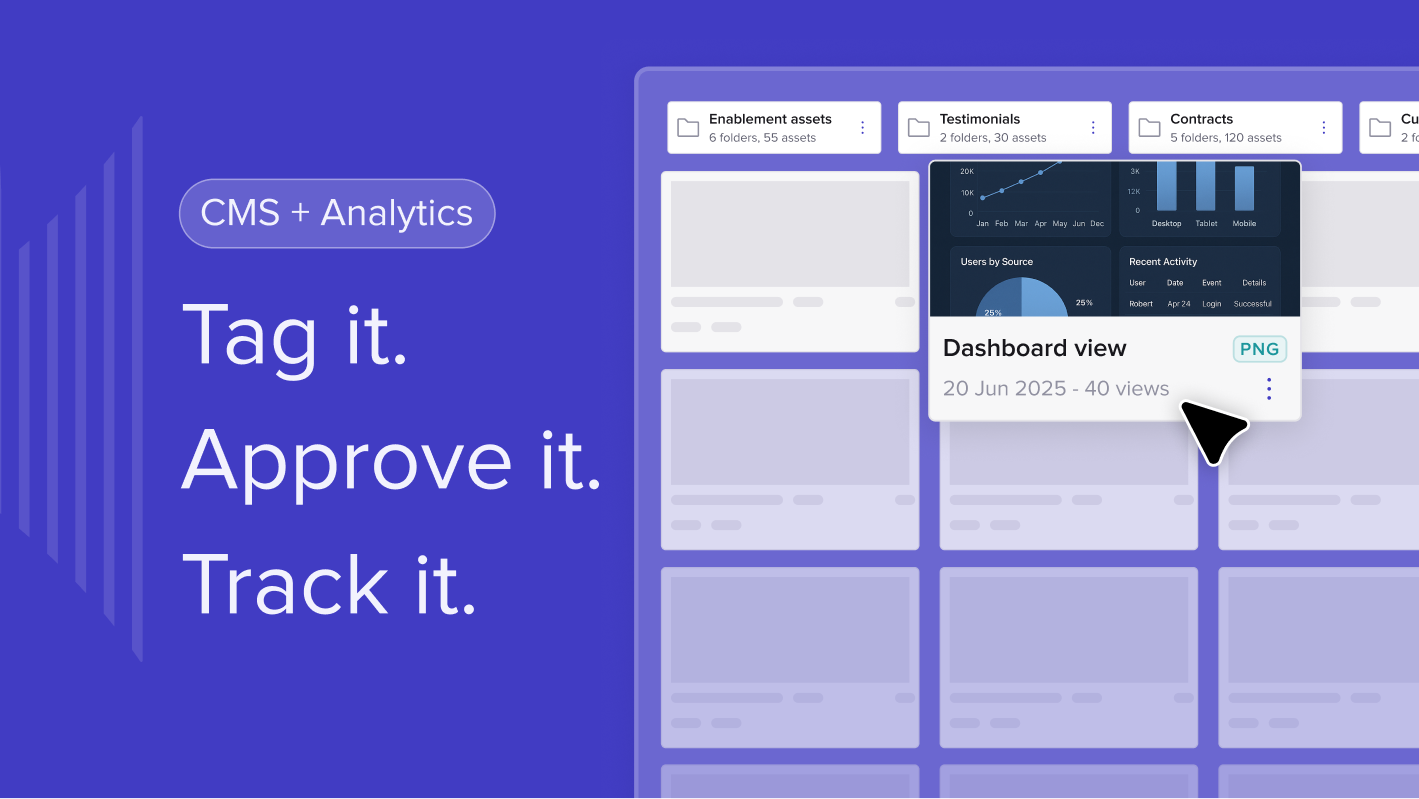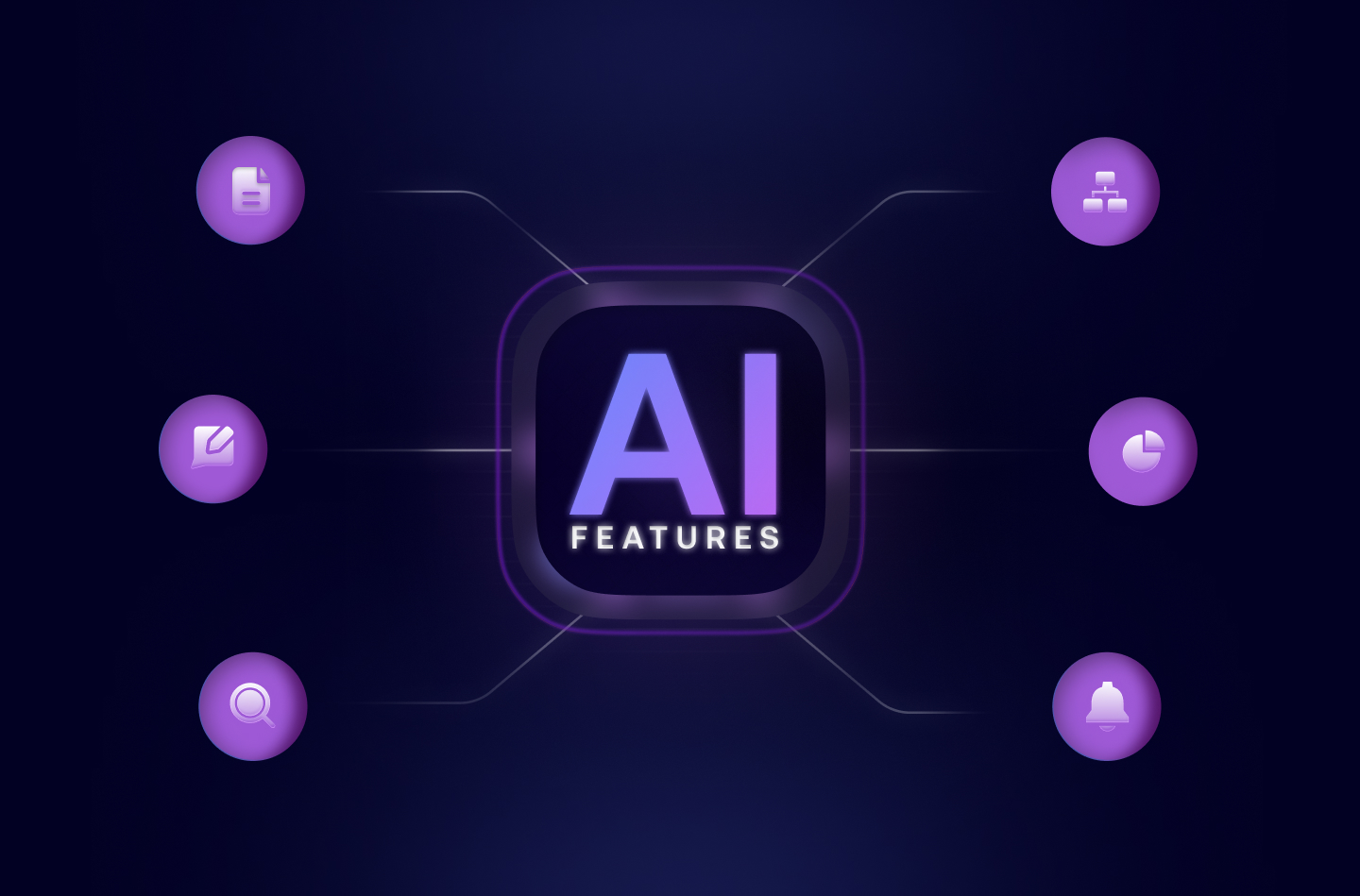Artificial Intelligence (AI) has become a driving force in transforming various industries, and B2B sales is no exception.
In today's digital era, where businesses are constantly grappling with evolving customer demands, staying competitive requires adopting AI technologies and leveraging their capabilities to drive growth and enhance the customer experience.
This comprehensive guide explores the ways in which AI is revolutionizing B2B sales and how organizations in different sectors are utilizing AI to stay ahead of the curve.
The changing landscape of B2B sales
Over the past two decades, digital transformation has disrupted numerous industries, leading to the bankruptcy, acquisition, or closure of 52% of Fortune 500 companies1.
However, the sales profession has remained relatively unchanged, relying on traditional methods that no longer align with modern customer expectations. To stay competitive, companies must embrace digital transformation and ingrain it into their DNA.
Embracing AI-powered insights for sales success
AI is poised to reshape how sales organizations operate, align with cross-functional teams, and manage their sales representatives1.
By leveraging AI-powered go-to-market insights, sales leaders can drive productivity, enhance forecasting accuracy, ensure sales teams focus on the right actions, bridge the sales and marketing gap, and nurture world-class sales teams of the future.
Increased productivity through insights and better information
AI has the potential to automate manual processes, freeing up salespeople to focus on driving growth1.
By automating tasks such as CRM data entry, AI ensures that sales teams have timely and accurate customer data, leading to increased productivity. In fact, one company reported a 15% increase in bookings per sales representative after automating manual CRM data entry1.
AI also provides sales reps with insights and guidance on the best next actions, doubling the productivity boost and increasing their chances of success1.
More complete engagement data = better forecasting
Traditional forecasting methods often rely on storytelling rather than data, leading to inaccurate predictions and impacting the entire organization1.
AI can revolutionize forecasting by leveraging algorithms and key buyer and seller engagement data to predict future revenue with higher accuracy1. This enables sales organizations to focus their resources effectively, communicate any risks to company leadership, and take data-informed paths to success.
Using AI-driven insights to ensure sales focus on the right actions
AI-powered technologies can analyze data from emails, calls, and collaboration tools to help sales teams prioritize tasks that drive value1.
By understanding the specific actions required to close deals with prospects, sales reps can focus their efforts on the most impactful activities.
For example, AI insights may reveal that involving a prospect's CFO at a specific stage of the selling process significantly increases the likelihood of closing the deal. Armed with this knowledge, marketing can launch targeted campaigns early in the buying process, optimizing their efforts and increasing the chances of success1.
Automation bridges the sales and marketing gap
Sales and marketing alignment is crucial for driving business growth, but achieving seamless collaboration can be challenging1. AI can bridge this gap by introducing accountability for both teams and providing real-time feedback.
With access to valuable sales insights, marketing can optimize their strategies without relying solely on the sales team's input. Simultaneously, the sales team gains a 360-degree view of every prospect's journey, enhancing their understanding and enabling more effective collaboration.
What world-class sales teams of the future need
The sales landscape is evolving, and sales teams must adapt to meet the changing demands of customers1. Data-driven coaching plays a vital role in developing high-performing sales teams.
By setting goals and benchmarking activities based on top performers, sales leaders can motivate and guide their teams towards success1. Additionally, data-driven coaching helps determine if sales reps are engaging with the right people, enabling them to refine their strategies and increase their chances of closing deals.
The power of AI and chatbots in customer support
AI and chatbots are not limited to sales; they also play a crucial role in delivering a positive customer experience (CX)2.
Customers today expect fast, seamless, and personalized interactions with businesses. However, relying solely on live agents can be costly and inefficient. That's why businesses across sectors have been investing in AI and chatbots to meet customer demands and enhance CX2.
Chatbot usage and the advantages of AI in customer support
As AI and chatbot usage increases, customer attitudes are evolving, and their acceptance of these technologies is growing2.
According to Zendesk's CX Trends 2023 report, 77% of customers find chatbots helpful for simple issues, and 71% agree that AI and chatbots can provide faster replies2. This indicates a shift in customer preferences and a recognition of the benefits that AI and chatbots bring to customer support.
AI and chatbots in different sectors
Various sectors are leveraging AI and chatbots to enhance CX and drive business growth2. Let's explore how AI and chatbot technologies are being utilized in five key sectors:
Financial services
Financial services leaders are at the forefront of embracing AI and chatbots to improve their customer service strategies2. They have seen positive ROI on their CX investments, with 86% reporting favorable outcomes2.
Moreover, 81% of financial services leaders plan to increase their AI and chatbot budgets in the next 12 months, indicating a strong commitment to leveraging technology to enhance customer experiences in this sector2.
Technology
The technology sector is highly supportive of AI and chatbot usage, with 84% of leaders reporting positive ROI on their CX investments2. This sector also exhibits a strong commitment to future investments, with 83% of leaders planning to increase their CX budgets in the next 12 months2.
The technology sector's embrace of AI and chatbots reflects its innovative nature and recognition of the value these technologies bring to enhancing CX.
Manufacturing
Despite facing challenges such as supply chain disruptions, the manufacturing industry is increasingly investing in AI solutions to drive sustainability and growth2.
While 74% of leaders in this sector report positive ROI on their CX investments, slightly below the global average, 77% plan to increase their CX budgets in the next 12 months2. This demonstrates a growing recognition of the importance of CX in the manufacturing industry and a commitment to leveraging AI to meet customer expectations.
Retail
The retail sector understands the significance of CX, particularly during uncertain economic times2. Retail leaders recognize the value of AI in improving the customer journey, enhancing demand prediction, and delivering superior customer service experiences2.
While 72% of retail leaders have seen positive ROI on their CX investments, slightly behind the global average, 74% plan to increase their CX budgets in the next 12 months2. This sector's commitment to CX indicates a drive to adapt to changing customer expectations and maintain a competitive edge.
Healthcare
Great CX is essential to healthcare organizations, with over 82% of healthcare leaders emphasizing its importance to their business goals2. While slightly below the average, 73% of health sector leaders report positive ROI on their CX investments2.
However, only 69% plan to increase their CX budgets in the next 12 months, indicating a slightly lower commitment to future investments compared to other sectors2. Nevertheless, the healthcare industry recognizes the significance of CX and is leveraging AI to improve patient experiences.
Deploying AI and chatbots for enhanced customer experiences
As businesses navigate customer expectations and economic challenges, the adoption of AI and chatbots is becoming increasingly crucial for delivering fast, personalized, and efficient service experiences2.
These technologies empower organizations to meet evolving customer demands and stay ahead of the competition.
By embracing AI and chatbots, businesses can unlock new levels of productivity, improve forecasting accuracy, focus on the right actions, bridge the sales and marketing gap, and nurture world-class sales teams.
In sectors like financial services, technology, manufacturing, retail, and healthcare, AI and chatbots are already making a significant impact, driving positive CX outcomes and contributing to business success2.
In a world where customers are more informed than ever before, businesses need to leverage AI and chatbots to match their sophistication and expectations1.
Early adoption of AI technologies will give companies a competitive advantage, enabling them to stay ahead of their competitors and deliver exceptional customer experiences.
Embracing the power of AI in B2B sales and customer support is not about replacing salespeople or live agents; it's about empowering them to focus on high-value tasks and providing them with the insights and tools they need to succeed in a rapidly changing digital landscape12.
So, are you ready to embrace AI and revolutionize your B2B sales strategies? The future is now, and AI is here to stay.

.svg)
.svg)
.svg)
.svg)
.svg)
.svg)
.svg)
.svg)
.svg)
.png)
.svg)
.svg)
.svg)
.svg)

.svg)
.svg)
%201.svg)
.svg)
%201.svg)



.svg)





















![How to Get Started with Buyer Enablement [With Examples]](https://cdn.prod.website-files.com/65cf4fecbed2754c2236665d/65cf4fecbed2754c22366bdb_65a5af83e742f76e34ce06f3_Customer%2520Onboarding%2520_%2520Everything%2520you%2520need%2520(2).png)
.png)



.png)



.png)









.png)


.png)

.png)
.png)







